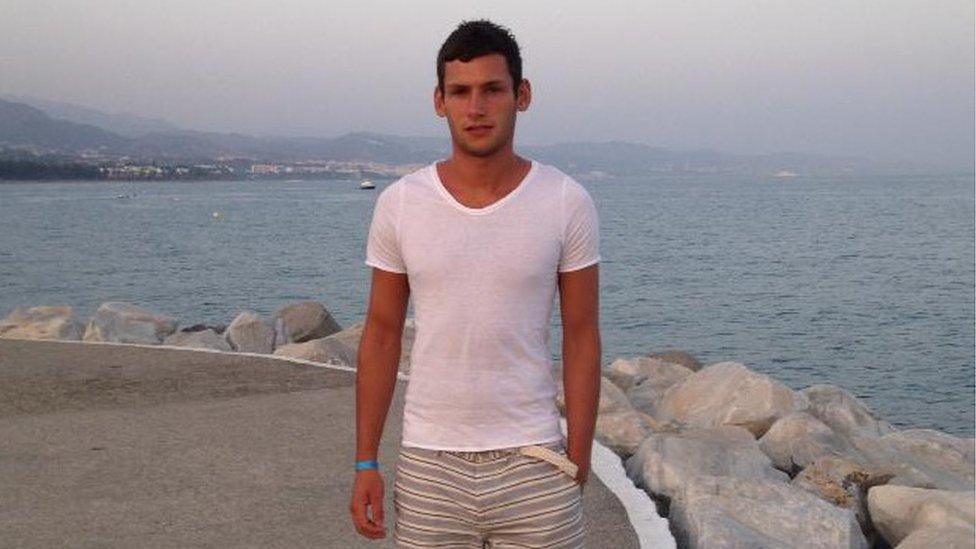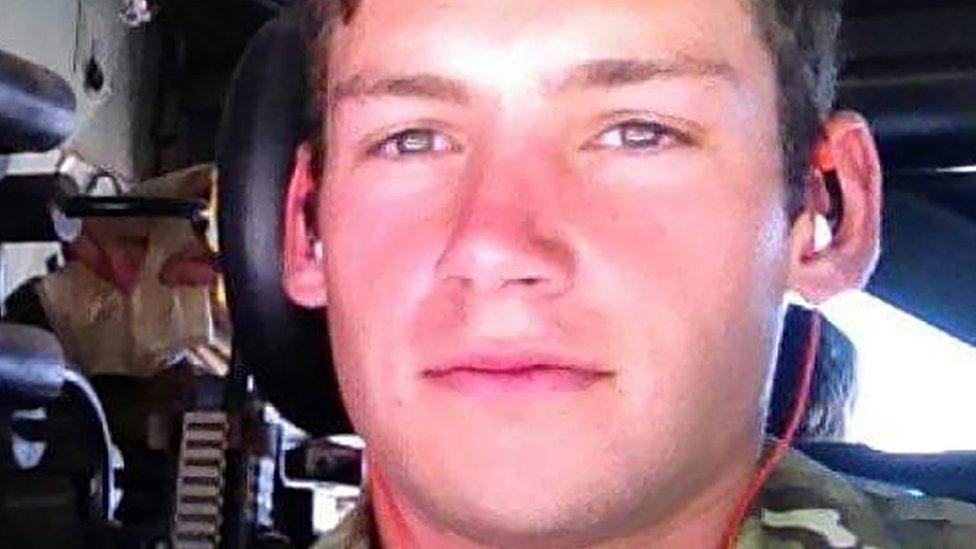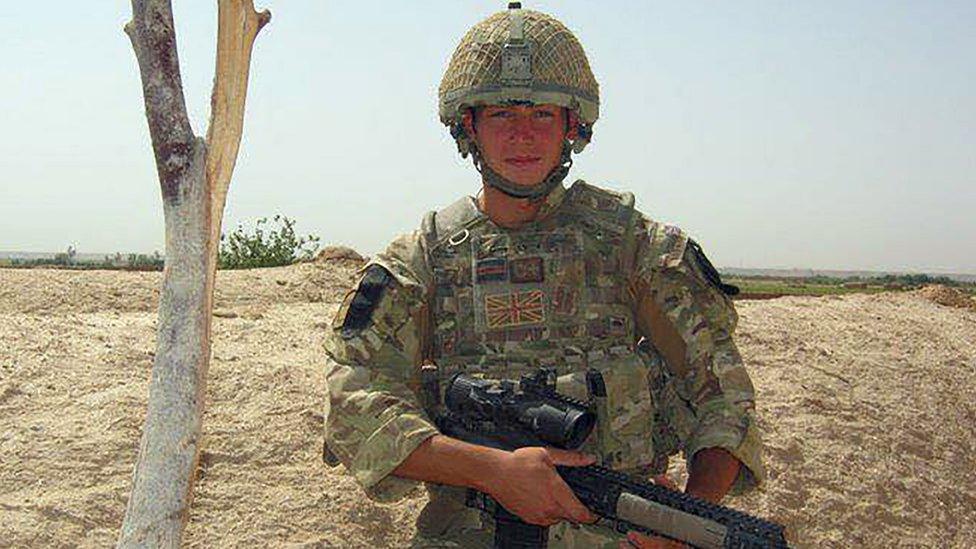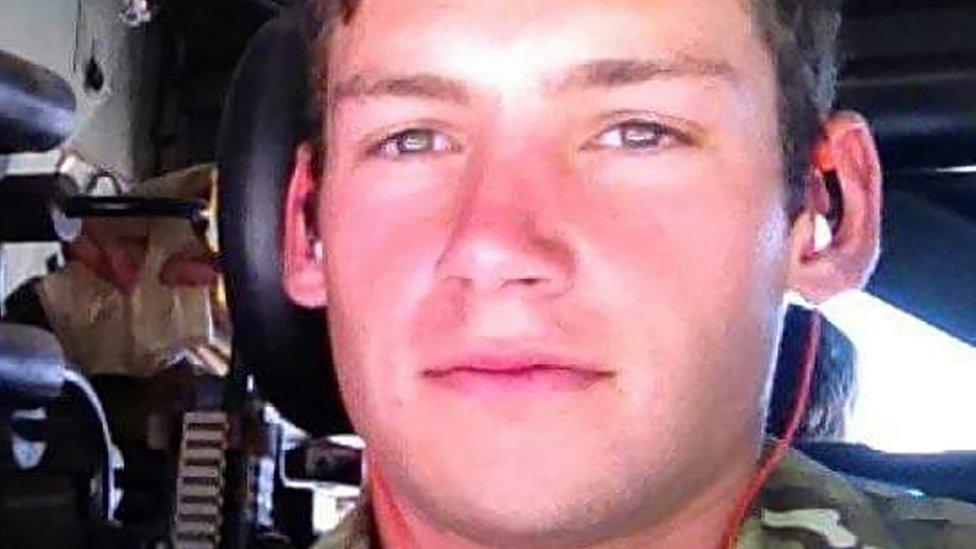Joshua Hoole: Soldier 'had to finish first' in fatal march
- Published

Cpl Hoole joined the Army in April 2008
The father of a soldier who died during an army fitness test has told an inquest his son felt he had to finish first to progress his career.
Cpl Joshua Hoole, who was 26 and from Ecclefechan, Dumfries and Galloway, died on a routine physical assessment in Brecon on a hot day in July 2016.
His death came three years after three army reservists died during an SAS selection march in the Brecon Beacons.
His father told the inquest in Birmingham his son was "going places".
Cpl Hoole, of The Rifles regiment at ITC Catterick in North Yorkshire, had been carrying 55lb (25kg) of equipment when he collapsed on a hot day, 400m from the end of the eight-mile (13km) annual fitness test on 19 July 2016.
In total, 18 of the 41 soldiers who took part dropped out, collapsed or were withdrawn by course-directing staff.
A 2017 defence service inquiry report concluded that Cpl Hoole, a "fit, capable and determined" soldier, died as a result of an undiagnosed underlying medical condition.
But his father Phillip Hoole, a former soldier, rejected the claim of the defence service report and successfully applied for the inquest to be resumed.

Joshua Hoole was fit and a medical examination had not flagged any issues
'Difficulty breathing'
The inquest heard how the 2016 march was in preparation for an infantry leaders' battle course running until 30 July, and operated by the Rifles' regimental training team.
Described by commanders as an "outstanding" leader and an "exemplary" soldier, Phillip Hoole, from Carlisle, said his son "felt he really had to come first [on the march] to get a slot on the course."
The coroner was told the march was supposed to start at 11:00 BST, but was moved to 07:00 due to the forecast conditions, which measured at 17C (62F) early that morning.
By the stage the troops were half-way round, 10 had already withdrawn, with one complaining of having a "pulsating head - feeling too hot", and another having "difficulty breathing due to the heat".
About an hour into the march one soldier, L/Cpl George Knight, was withdrawn and later described "blanking out and collapsing into a hedge".
Another soldier also withdrew after feeling "dizziness and confusion" before Cpl Hoole's collapse.
A forensic pathologist told the coroner: "If it is found that heat exertion played a significant role in the death, I would say this was a sudden death associated with heat and exertion."

Cpl Hoole served in Afghanistan
The inquest also heard an allegation that an officer, Capt Colin Newfer, had invited another soldier, L/Cpl Knight to change his and other soldiers' stories about how they came to be withdrawn from the march.
Senior coroner for Birmingham and Solihull Louise Hunt heard an investigation into the matter was still ongoing.
Staff Sgt Richard Jones, a Royal Military Police senior investigator, also told the coroner how Capt Newfer had been "interviewed under caution" about an allegation that he had invited L/Cpl Knight and other soldiers to change statements about the incident in which L/Cpl Knight himself came to be withdrawn.
'Shone a light'
Paying tribute to his son, Mr Hoole said: "He shone his light on all of us.
"Had his life not been extinguished, I am sure that he would have achieved much more.
"Always swift and bold - and never forgotten."
The inquest, which is expected to last three to four weeks, continues.
- Published25 July 2019

- Published13 November 2017

- Published15 November 2017

- Published17 November 2016

- Published22 July 2016
